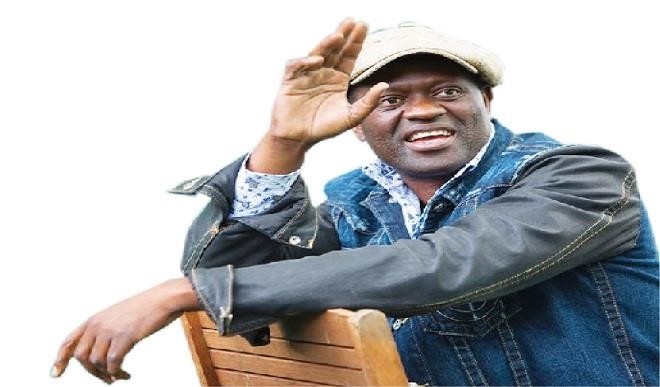Review: Black Moses by review – a picaresque tour-de-force
A Congolese orphan struggles to escape desperate circumstances in a novel whose ebullient humour has an undertow of grief Alain Mabanckou, a writer of ferocious wit and fearless inventiveness, has won acclaim for novels such as Broken Glass, African Psycho and Black Bazaar, which span the Congo-Brazzaville of his birth and the black communities of […]


A Congolese orphan struggles to escape desperate circumstances in a novel whose ebullient humour has an undertow of grief
Alain Mabanckou, a writer of ferocious wit and fearless inventiveness, has won acclaim for novels such as Broken Glass, African Psycho and Black Bazaar, which span the Congo-Brazzaville of his birth and the black communities of Paris, where he moved in 1989. In 2012, he won the Académie Française’s grand prix for a lifetime’s achievement. That same year, this UCLA professor returned to his home town of Pointe-Noire, on the Republic of Congo’s equatorial coast, after an absence of 23 years. The memoir The Lights of Pointe-Noire was one fruit of that bittersweet return. His latest novel, Petit Piment, which was shortlisted for the Prix Goncourt, is another. Its English translation as Black Moses, by Helen Stevenson, is justly longlisted for this year’s Man Booker International prize.
The novel is dedicated to all those “wanderers of the Côte Sauvage” – Pointe-Noire’s urban beach – who told the author “pieces of their life story” during his stay in the port city. Its ebullient humour recalls Tomorrow I’ll Be Twenty, Mabanckou’s fictionalised autobiography of growing up in the 1970s under a Marxist-Leninist regime. Yet unlike in that buoyantly mischievous child’s-eye satire, the laughter here has an undertow of grief, outrage and survivor’s guilt.
The eponymous narrator of this picaresque tour-de-force is an inmate at an orphanage on the outskirts of Pointe-Noire. Abandoned as an infant, he is christened Moses by the kindly Papa Moupelo, a “pocket-sized” priest in elevator heels from neighbouring Zaire, who is the children’s moral compass. Though his destiny as a saviour is uncertain, Moses stands up for the weak. His nickname, Little Pepper, derives from daringly avenging his best friend Bonaventure’s torment at the hands of bully-boy twins by spiking their midnight feasts with chilli powder.
Moses’ childhood is punctuated by loss, and tutored by power. The priest vanishes around the time that a crate of red kerchiefs for the orphans arrives from the government to mark the country’s adoption of scientific socialism. In place of the catechism, the orphanage force-feeds its “300 parrots” jargon lifted from Moscow and Romania. Next to disappear is his mother-substitute, Sabine, whose father was a Cuban soldier – one of 5,000 sent by Fidel Castro to next-door Angola. Sabine, his provider of stories and books, is forcibly retired by the orphanage director, Dieudonné, a mini-tyrant who appoints his brutish nephews as corridor wardens, and retains as caretaker a morgue attendant dismissed for necrophilia. Despite beating his charges and extracting sexual favours from single mothers, Dieudonné protests righteously to the orphanage inspectors checking for paedophiles: “They have that in Europe, not here!”
Like the director, who was in the losing ethnic group (the Bembe) after the Marxist coup but survived because he “changes with the wind”, Moses soon learns to perfect his volte-face. Strategically allied with the bullying twins, he guiltily leaves the timid Bonaventure behind to escape to Pointe-Noire, and live as a petty thief, eating cat and dog meat (which disturbs his dreams), and sleeping with the street kids in the African quarter’s market. When a mayor intent on re-election mounts a clean-up drive against the “mosquitoes of the Grand Marché”, Moses finds refuge in a brothel, whose well-connected Zairean madam, Maman Fiat 500, lands him a job as a docker in the container port. Her profession is not a choice: “Only God can judge … There comes a day you look in the mirror, there’s nowhere to go, your back’s to the wall. So you cross the line, you offer your body to a passerby.”
When the brothel is bulldozed in another mayoral drive, “Zero Zairean Whores in Pointe-Noire” (which leaves Congolese prostitutes in peace), the women are raped and deported or dumped in mass graves. In a novel whose characters expose the sharp end of corruption and nepotism, their treatment recalls Bonaventure’s mother, used as a “spare wheel” by a married public employee in the Water and Electricity company. Seeking his support for their illegitimate son, she had found herself in court for unpaid bills, with her light and water cut off.
The litany of loss and injustice sends Moses, by now nearing 40, towards madness. Yet fired – like all Mabanckou heroes – by his reading of books, he dons a green hood, sewn by Malian tailors, in emulation of Robin Hood, and resolves to act. Moses’ narrative turns out to be a confession written from a penitentiary for the criminally insane – built on the site of the razed orphanage. Mabanckou’s indignation at times recalls Wizard of the Crow, Ngũgĩ wa Thiong’o’s grotesque satire on dictatorship and kleptocracy – together with its spirit of resistance and hope of salvation. Yet there is also a touching personal homage in this retelling of the lives of some of those unable to escape the asylum.
Source: theguardian.com
